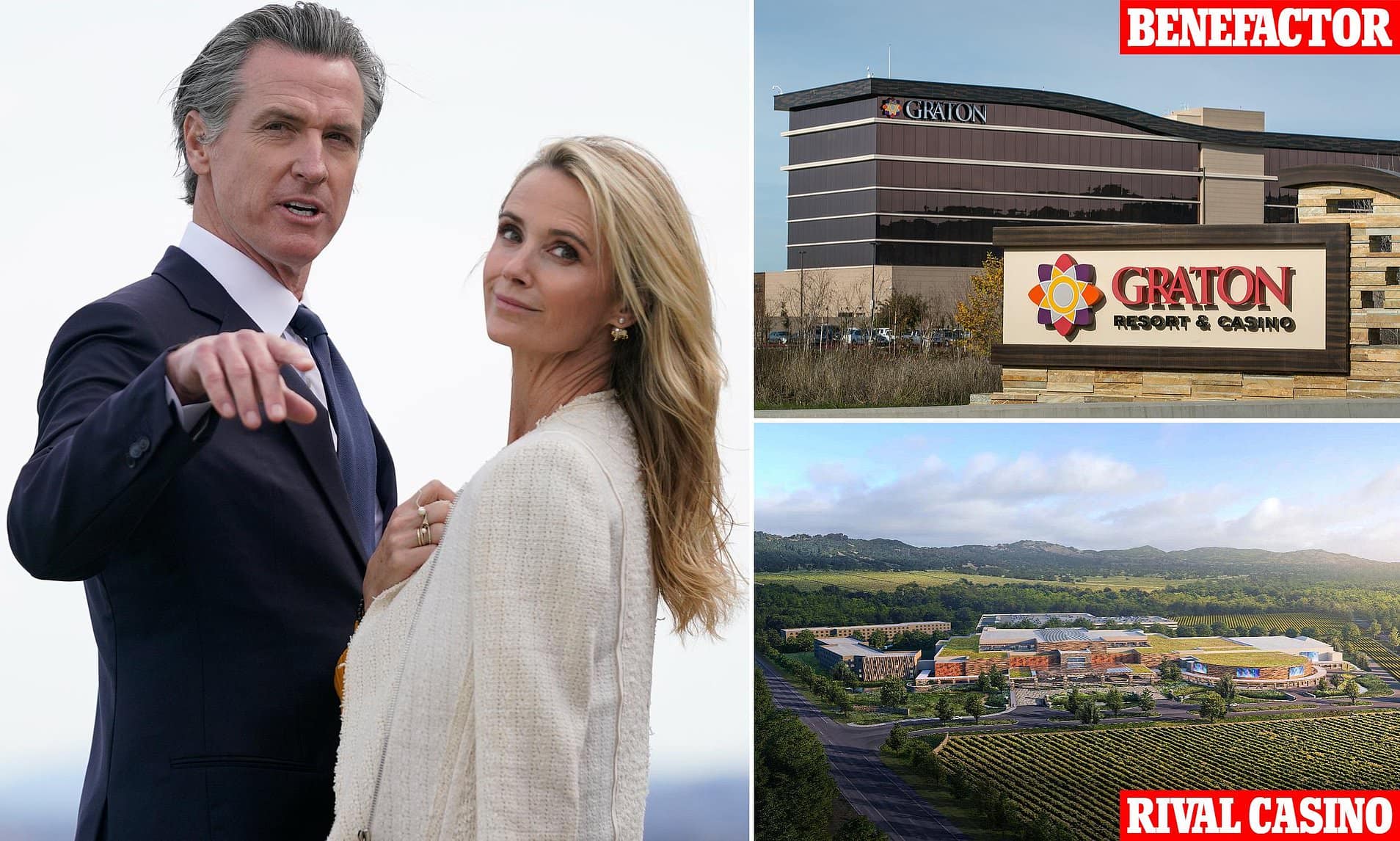Governor Newsom and the Controversy Over Tribal Donations
California Governor Gavin Newsom has been at the center of a growing controversy involving significant financial contributions from a Native American tribe to his wife’s nonprofit organization. The donations, totaling nearly $2 million, have raised questions about potential conflicts of interest and whether the governor’s official actions on behalf of the Federated Indians of Graton Rancheria (FIGR) were influenced by these payments.
Records obtained by the Daily Mail reveal that Newsom personally requested the so-called “behest payments” from FIGR. These contributions were funneled into The California Partners Project, a nonprofit co-founded by Newsom’s wife, Jennifer Siebel Newsom, in 2019. The charity focuses on promoting gender equity and has received substantial support from the tribe.
In addition to the charitable donations, FIGR also contributed $200,000 in December 2018 and $250,000 in January 2023 to fund Newsom’s inauguration. These payments, while legal under current campaign finance laws, have sparked debate over their implications.
A Strategic Alliance with FIGR
The relationship between Newsom and FIGR took a more contentious turn when the governor and state officials joined the tribe’s efforts to block a competing casino project. This rival casino, proposed by the Koi Nation, was set to open just 15 miles away from FIGR’s Graton Resort & Casino in Sonoma County. The project would have included 2,750 slot machines, 105 table games, and other amenities.
In August 2024, Newsom wrote a letter to the U.S. Department of the Interior opposing the Koi Nation’s plans, arguing that expanding tribal gaming could negatively impact surrounding communities. He also questioned the tribe’s historical connection to the land, which the Koi Nation disputed, claiming a 3,000-year presence in the area.
Despite opposition from Newsom and local leaders, the Biden administration approved the project. However, FIGR continued its legal battle, filing a lawsuit against the federal government. During this time, the tribe made another $500,000 donation to The California Partners Project in April 2024.
Legal and Ethical Concerns
While the donations themselves are not illegal, critics argue that the timing and nature of the contributions raise ethical concerns. Daniel Schnur, former chairman of the California Fair Political Practices Commission, described the situation as a “loophole in the laws that you can drive a semi-trailer truck through.”
Schnur noted that although there is no direct evidence of wrongdoing, the governor’s office has faced backlash for suggesting that the donations had no influence on his decisions. When asked about the matter, Newsom’s office called the inquiry “insulting and offensive.”
Jennifer Siebel Newsom also responded to the allegations, stating that the California Partners Project is an independent nonprofit with no role in government decision-making. She emphasized that neither she nor her husband receives any personal financial benefit from the organization or its donors.
Defending the Donations
Greg Sarris, chairman of FIGR, defended the tribe’s contributions, highlighting its long history of supporting causes that improve the lives of Californians. He stated that FIGR has consistently supported The California Partners Project since 2022.
However, the controversy has drawn attention from political opponents who may use it as a campaign issue if Newsom pursues a presidential bid. Schnur predicted that such attacks would likely emerge, though he expects the governor to deny any suggestion of a “pay for play” scheme.
As the legal battle over the Koi Nation’s casino continues, the question of whether Newsom’s actions were influenced by the tribe’s financial support remains unresolved. The situation underscores the complex relationship between political leaders, tribal interests, and the ethical boundaries of campaign financing.

